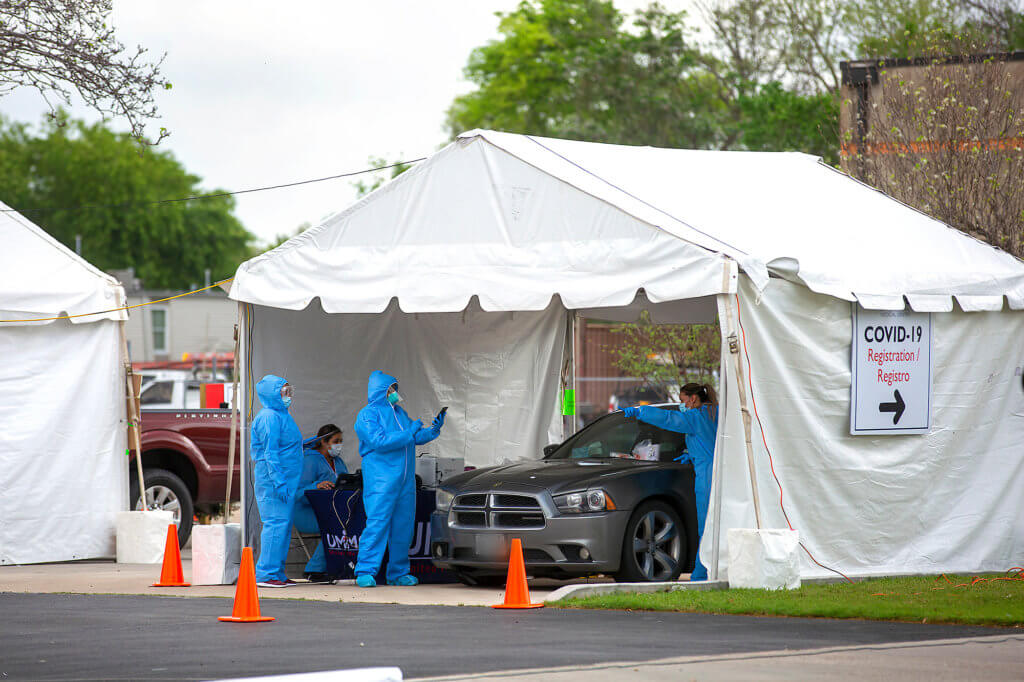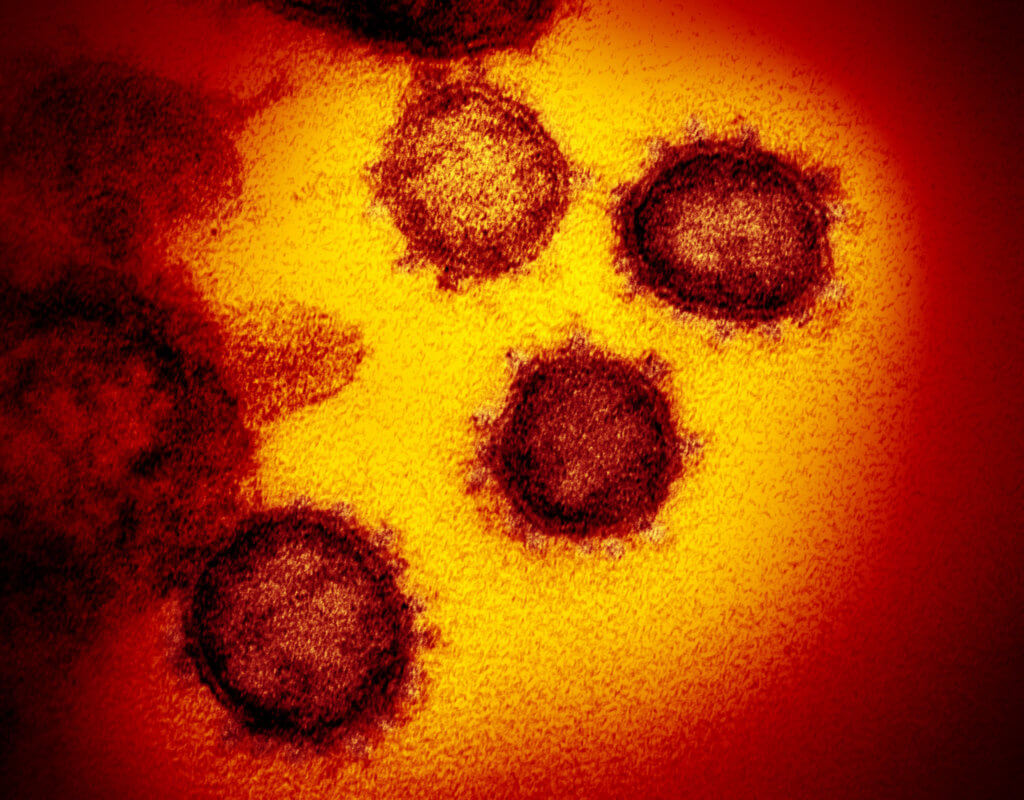Touch starvation is a consequence of COVID-19’s physical distancing

Positive human touch is an integral part of human interaction. Whether it’s a warm embrace, a reassuring hand on the shoulder or one arm linked through another, physical contact is a large part of how we show concern and establish camaraderie with friends and loved ones.
::::::::::::::::::::::::::::::::::::::::::::::::::::::::::::::::::::::::::::::::::::::::::::::::::::::::::::::::::::::::::::::::::::::::::::::::::::
Looking for the latest on the CORONAVIRUS? Read our daily updates HERE.
::::::::::::::::::::::::::::::::::::::::::::::::::::::::::::::::::::::::::::::::::::::::::::::::::::::::::::::::::::::::::::::::::::::::::::::::::::
But as we practice social distancing to prevent the community spread of COVID-19, platonic physical touch among friends and colleagues is off limits. Hugs, high-fives, friendly pats on the back or anything that breaches the six-foot rule are now taboo.
“Human beings are wired to touch and be touched. When a child is born, that is how they bond with their mother—through touch,” said Asim Shah, M.D., professor and executive vice chair of the Menninger Department of Psychiatry at Baylor College of Medicine. “Our wiring system has touch everywhere, so it’s difficult for us not to think about physical contact.”
Touch starvation
When physical contact becomes limited—or, in some cases, eliminated—people can develop a condition called touch starvation or touch deprivation.
“When someone is [touch] starved, it’s like someone who is starved for food,” Shah said. “They want to eat, but they can’t. Their psyche and their body want to touch someone, but they can’t do it because of the fear associated with, in this case, the pandemic.”
Touch starvation increases stress, depression and anxiety, triggering a cascade of negative physiological effects. The body releases the hormone cortisol as a response to stress, activating the body’s “flight-or-fight” response. This can increase heart rate, blood pressure, respiration and muscle tension, and can suppress the digestive system and immune system—increasing the risk of infection.
People who are stressed or depressed, perhaps because of lack of touch, will have problems sleeping, Shah said.
“Every single medical disease including heart attack, diabetes, hypertension, asthma—every single physical disease—is altered if you are more anxious, more depressed or if you have more mental health issues,” he said,
Long term, he added, going an extended period without positive physical touch can even lead to post-traumatic stress disorder.
Positive touch, positive health
Skin is the largest organ in the human body, covering us from head to toe.
A 2018 study by scientists at the Medical College of Wisconsin in Milwaukee found that skin communicates positive and negative touch stimuli to our sensory neurons.
The outermost layer of our skin, called the epidermis, is predominantly made up of billions of keratinocyte cells. The keratinocytes release a chemical called adenosine triphosphate (ATP), which activates receptors on the sensory nerve to convey the sensation of touch to the brain.
When we hug or feel a friendly touch on our skin, our brains release oxytocin, a neuropeptide involved in increasing positive, feel-good sensations of trust, emotional bonding and social connection, while decreasing fear and anxiety responses in the brain at the same time. For this reason, oxytocin is affectionately known as the “cuddle hormone.”
Our desire for physical contact starts at birth.
“If a baby is born prematurely, the baby may be in the NICU [neonatal intensive care unit], but the mother is still asked to go to the NICU a few times a day to hold the baby and put the baby on her chest, even if they’re not breastfeeding,” Shah explained. “We know that this bonding, this human-to-human touch, is important for the growth of that child.”
Even as adults, touch helps regulate our digestion and sleep, and even boosts our immune systems.
Hugging can also help our bodies fight off infections, according to a 2014 study conducted by researchers at Carnegie Mellon University.
In the study, 406 participants responded to questionnaires and telephone interviews to evaluate their level of social support and frequency of hugs over the course of 14 consecutive evenings. After researchers intentionally exposed the participants to the cold virus to test their immune functions, they found that “those who receive more hugs are somewhat protected from infection and illness-related symptoms” and “physical contact with a close other [reduces] the effects of stress on biological markers thought to be precursors of disease.”
While nothing can wholly replace the benefits of positive human touch, virtual alternatives can help alleviate the effects of touch starvation.
“You can have almost the same element if you [connect] by video chat—whether it’s FaceTime or Zoom or WebEx,” Shah said. “You may not be able to engage in physical touch, but you need to be able to see each other.”
Video chatting, he said, is about 80 percent as effective as in-person contact. Online yoga and workout classes, singing and dancing are other activities that increase the release of oxytocin in the brain. Pets are also proven to be therapeutic during stressful times.
The end of handshaking?
It’s unclear when the COVID-19 outbreak will subside or how people will physically reconnect. But the “new normal” of social distancing has erased customary nonverbal gestures, such as shaking hands and social hugging.
Even Anthony Fauci, M.D., director of the National Institute of Allergy and Infectious Diseases and the country’s leading COVID-19 expert, admitted that he doesn’t believe people should reintroduce the handshake.
“I don’t think we should ever shake hands ever again, to be honest with you,” Fauci said during a Wall Street Journal podcast last month. “Not only would it be good to prevent coronavirus disease, it probably would decrease instances of influenza dramatically in this country.”
Although Shah said the “long-term impact of touch deprivation is devastating,” he remains optimistic that people will overcome the stress and anxiety of physical distancing.
“Human beings are very resilient,” he said. “We will learn the new level of intimacy. We will learn the new way of human connection—and we will learn to bring joy in different ways.”




